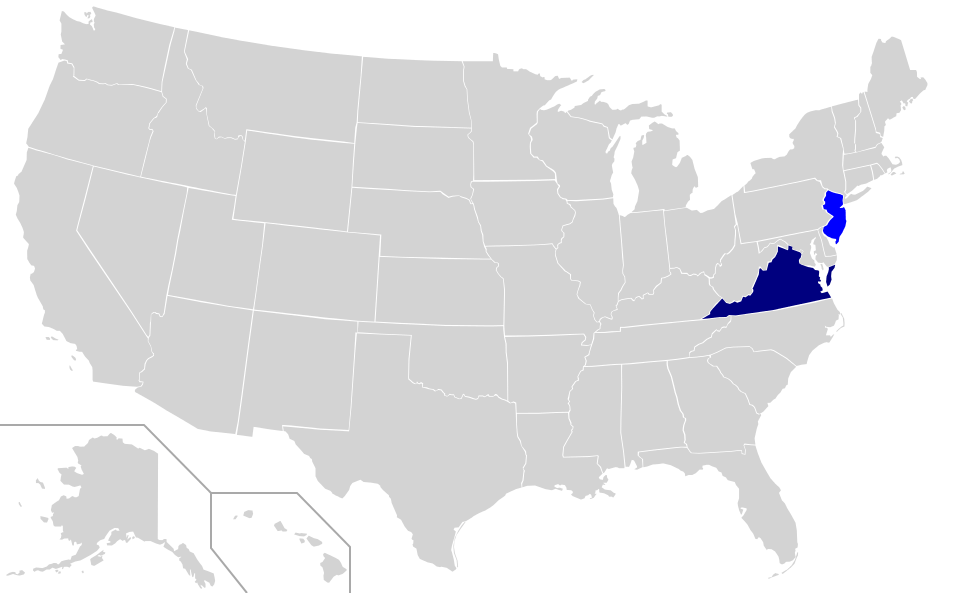by The Cowl Editor on November 16, 2017
Opinion

by Andrea Traietti ’21
Opinion Staff
Tuesday, November 7, marked the first regularly scheduled election day since Donald Trump’s victory in the 2016 presidential race, and the results overwhelmingly showed that America is ready for change.
Democrats took key victories in many states and on many different levels, proving that Americans are looking for a response to a rather tumultuous first year of the Trump administration.
In New Jersey, Democrat Phil Murphy was elected governor, representing a huge change from the chaotic eight-year term of Republican Chris Christie, who is leaving office as one of the most unpopular governors in the country.
In Virginia, Democrat Ralph Northam routed Republican Ed Gillespie in what was shaping up to be a close gubernatorial race.
The crucial victories in these two states show a rather unexpected unity in the Democratic party, which was divided and quickly losing influence after Hillary Clinton’s dramatic loss in the 2016 election. These victories have even created disunity within the Republican Party, with President Trump himself criticizing Ed Gillespie on Twitter, stating that Gillespie failed to embrace Trump and what he stands for.
Democratic victories seemed to be a result of a movement largely driven by moderate voters who embraced Democrats as an alternative to Trump. The results of the elections offer hope for the midterm elections next year, a chance for Democrats to reorganize their presence in Congress and regain the influence they lost with Trump’s victory.
However, aside from what these victories mean for the Democratic Party or even for the political system in America, for that matter, smaller-scale victories across the U.S. might be even more important symbols of change in a positive direction.
Victories on various levels in many different states showed a movement towards creating a more diverse and inclusive legislative system in America. Hillary Clinton’s loss in the presidential race was a huge disappointment in terms of her mission to “break the glass ceiling,” but victories in Tuesday’s election have shown how many people have not given up on the goal of breaking through political barriers.
In Virginia, a transgender woman, Danica Roem, was elected as a Democratic state delegate, becoming the first openly transgender person to win a seat in a U.S. statehouse. Roem received a call from former United States Vice President Joe Biden congratulating her on her win, and a photo of Roem falling to her knees on election night quickly went viral on the Internet. Roem won her seat after beating incumbent Republican Bob Marshall, who helped to draft a transphobic “bathroom bill” in the state.
In Helena, Montana, Democrat Wilmot Collins won the race for mayor. Collins is a refugee from Liberia, and he defeated incumbent Jim Smith, who had held office since 2001. Collins will be Helena’s first black mayor. Similarly, in Charlotte, North Carolina, Vi Lyles won the mayoral elections, becoming the first African American woman mayor in Charlotte’s history.
In Manchester, New Hampshire, Democrat Joyce Craig defeated Republican mayor Ted Gastas, and will become the first female mayor in the history of New Hampshire’s largest city.
These victories, along with many others, have sent the message that the fight to break through barriers for historically marginalized groups has not disintegrated with Clinton’s loss or with the seemingly disorganized state of the Democratic Party. Instead, this effort is actually stronger than ever, especially in the face of adversity.
Democratic wins are a step in the right direction to condemn hate in the form of homophobia, racism, and misogyny that has seeped into American politics and social systems. The diversity of newly elected officials has reaffirmed that everyone has a place in the American political system, and that all types of people should be represented in social and political life.
Overall, the results of Tuesday’s elections give a brighter outlook for the future of the Democratic party and its presence and influence in Congress. But perhaps even more importantly, victories across the country have given hope to the idea that Americans are not willing to accept the presence of hate in our political system, and that they have not yet given up on fixing the problems within our government.
Even when victories come on a smaller scale, we have to continue the push towards inclusivity and equality within our legislatures if we hope to spread these ideals to American society on the whole.